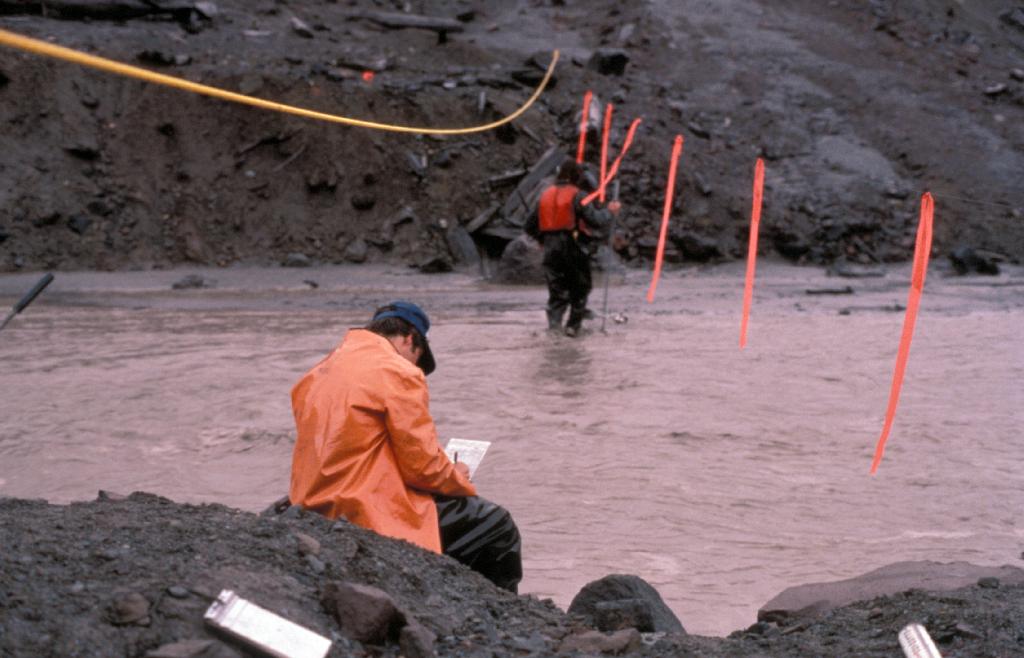What is a hydrologist?

© Lyn Topinka USGS Cascade Volcano Observatory
Hydrologists study the distribution, circulation, and properties of water to monitor, manage, and protect this fundamental resource. Water, a resource that is essential for all known forms of life, covers 70% of the Earth's surface.
If I want to study or have a career in hydrology, what classes should I take in middle or high school?
Take as many Earth science, biology, chemistry, physics, mathematics and computer science courses as you can. English is also important since scientists need to write clearly and communicate their findings to others on a regular basis. You might also find it helpful to take a course in public speaking. Find out what after-school organizations your school has that can help you with a career as a hydrologist, such as Science Clubs. Also consider doing a water-focused project for your local science fair and look for summer field experiences at near-by colleges and universities.
At the university level, what courses should I take?
Most hydrologists have undergraduate degrees in physical or natural science or engineering. Courses should include hydrology, physical sciences, geophysics, chemistry, engineering science, soils, mathematics, aquatic biology, atmospheric sciences, statistics, geology, meteorology, oceanography, calculus, physics, and the management or conservation of water.
What are the educational requirements for becoming a professional hydrologist?
A bachelor's degree in physical or natural science or engineering as well as an excellent background in basic sciences are the minimum educational requirements for employment. In addition to a bachelor's degree, most employers in the hydrology field commonly require a graduate degree.
Where do hydrologists work?
Jobs in hydrology are found in federal, state and local government agencies, private firms, and nonprofit and academic institutions. Government agencies hire hydrologists for research and water resource development, management, and environmental protection. Private firms hire hydrologists to work with the development, management, and usage of water. Hydrologists in academic institutions usually work in universities and museums.
Where can I find more information on hydrology?
- Geoscience Careers: www.earthscienceworld.org/careers/index.html
- BLM Career Cards: www.blm.gov/education/scouts/jobs/hydrologist.html
- Careers in Hydrology (USGS): mo.water.usgs.gov/outreach/careers/index.htm
- Careers in Hydrology (University Council on Water Resources): www.ucowr.siu.edu/hydro/h13.html
- Geoscience Salary Information (AGI): www.americangeosciences.org/workforce/currents
